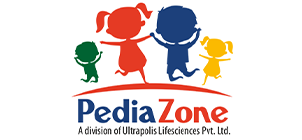
Tips to Keep in Mind When You Are Giving Your Children Medications
Giving medication to children requires extra care and attention. Children’s bodies react differently to medicine, so it is important to follow proper guidelines to ensure safety. Incorrect dosages, wrong administration methods, or giving medicine without a doctor’s advice can lead to harmful effects. Therefore, it is essential to measure doses correctly and be aware of possible side effects. Some medicines require food, while others should be taken on an empty stomach. Also, parents must store medicines safely to prevent accidental ingestion. By following simple steps, parents can ensure that children receive the correct treatment without any risks.
Follow the Correct Dosage
One of the most important factors in giving medicine to children is following the correct dosage. Children’s bodies are smaller and more sensitive, so even a small mistake can be dangerous. Always check the prescription or medical label for the recommended dosage. Use a proper measuring tool, such as a medicine spoon or syringe, rather than a kitchen spoon, to ensure accuracy. Never guess the dosage or give extra medicine, thinking it will help them feel better faster. Overdosing can have severe side effects. If you are unsure about the correct amount, always consult your doctor before giving any medicine.
Give Medicines at the Right Time
Timing is crucial when giving medication to children. Some medicines work best when taken before meals, while others need to be taken after food. Always check the instructions to ensure proper timing. For antibiotics and other sensitive medicines, follow the schedule strictly. Skipping doses or giving them too late can reduce their effectiveness. If your child misses a dose, do not double the next dose without a doctor’s advice. Setting reminders or using a medication chart can help keep track of the schedule. Consistent timing ensures that medicines work properly and prevents complications.
Watch for Side Effects
Some children may have allergic reactions to certain medications. It is important to watch for signs like difficulty breathing, vomiting, swelling, or rashes after taking a new medicine. If any of these symptoms appear, stop the medicine immediately and seek medical help. Side effects like drowsiness, diarrhea, or nausea can be common, but severe reactions require urgent attention. Always inform your doctor about any allergies your child has before starting a new medicine. If your child experiences unusual symptoms, do not ignore them. Keeping a record of past reactions can help doctors prescribe alternatives in the future.
Store Medicine Safely
Proper storage of medicine is important to maintain effectiveness and keep children safe. Some medicines need to be stored in the refrigerator, while others should be kept in a cool, dry place. Always store medicines in their original packaging with clear labels. Keep them out of reach of children to prevent accidental consumption. Many medicines look like candy, which makes them attractive to kids. Always check the expiry date before giving any medicine, as expired medicines can lose effectiveness or become harmful. Safe storage practices help prevent accidental poisoning and ensure that medicines work properly.
Giving medicine to your child requires careful attention to dosage, timing, side effects, and storage. Parents should follow medical advice, use the right measuring tools, and ensure that medications are given safely. Watch for allergic reactions and keep medicines out of reach to prevent serious risks. By taking proper precautions, parents can help their children recover safely without any complications.


